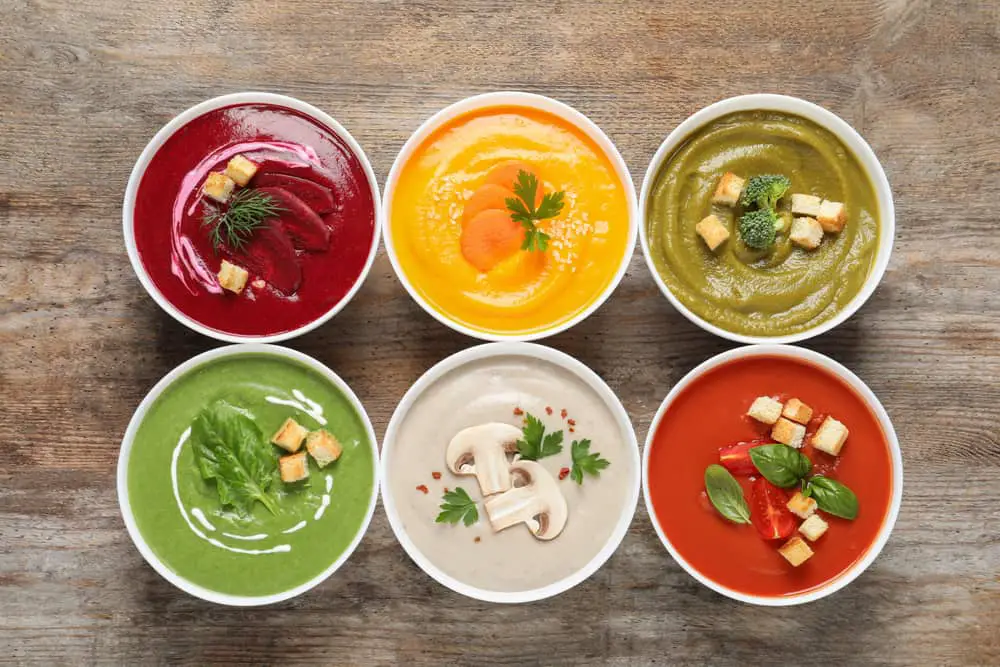What is Potato Flour?
As you might suspect, potato flour is flour made from whole potatoes. It comes from whole potatoes that have been baked, then dried, and finally ground into a powder that resembles flour.
This flour looks more like whole wheat flour in its beige to brown appearance – and is not white, unlike bleached all-purpose flour.
What Does Potato Flour Taste Like?
You probably expect potato flour to taste at least a little bit like potatoes, and you are right. You’ll have a mild to strong taste and smell of potatoes when eating something with this flour in it. Potatoes themselves tend to have a mild, inoffensive flavor in the first place, so their flour will taste quite familiar and pleasant to most.
So don’t worry so much about the “potato” in the name. While it does taste like potatoes, it doesn’t really add to the flavor!
What Do You Use Potato Flour For?

This flour has a variety of uses, but you probably know that potatoes hold water well. Their ability to hold water makes them ideal for baking bread that stays moist. A typical all-purpose flour will dry out a bit more quickly than potato flour in bread because the flour made from potato naturally takes in more water and moisture – and gives you more chances to keep that fresh bread tasting moist and delicious.
This flour also makes an excellent gluten-free thickener for soups, gravies, and sauces that intend to be smooth. Home chefs love potato buns for hamburgers.
Given its presence in liquid-based dishes, you can see that potatoes are ideal for soaking up or thickening.
Is Potato Flour Healthy?
Flour made from potatoes is a great source of vitamin B, vitamin B6, vitamin C, niacin, and many others, including potassium and fiber.
You’ll also get protein! The combination of vitamins and minerals within potatoes makes a more complex nutritional item than typical all-purpose flour and can contribute to a healthier lifestyle. Vitamin C for example, helps your immune system and mood. Fiber helps your digestion maintain regularity – it’s overall good!
Is It Healthier than Regular Flour?
Generally speaking, yes. We are also making this statement based on health facts from processed white or wheat flour. Flour has some vitamins and minerals, but is also filled with carbohydrates which some people are sensitive to for allergies and for weight gain.
While flour made from potatoes is a healthy alternative to all-purpose flour, all-purpose flour can be made in a healthy manner without processing. All-purpose flour can also be helped when it’s processed in a way that includes more of the wheat – cheaper all-purpose flour removes some nutritional parts.
Is Potato Flour Paleo?
The biggest issue paleo has with potatoes is processing and grains. Flour made from potatoes, when unprocessed – or having anything added to it, could be paleo.
Is Potato Flour Gluten-Free?
It is certainly gluten friendly! Potatoes contain no gluten and the fibrous parts are removed. So, you can eat this flour and be assured that it is gluten-free.
Is Potato Flour High in Protein?
Yes, it has protein. While we wouldn’t say that it should be a primary source of protein, the amount of protein offers advantages over regular white all-purpose flour for the purpose of getting protein into your body.
How to Store
The bag it came in is a good start! Otherwise, find an air-sealed container at either room temperature or in the fridge. Potato flour lasts a solid six to eight months, if kept in a dry place with a good lid on.
Is Potato Flour Good for Acid Reflux?

You’ve read of the wonderful qualities of potatoes to absorb water and make good bread. This flour can help inside your body, too! It helps absorb the acids that can cause acid reflux and has the potential to make acid reflux better.
Is It the Same Thing as Potato Starch?
The key difference is nutrition and taste. Potato starch is nearly tasteless and offers a different purpose from potato flour. Potato starch can be added to bread to keep moisture and is also used as a thickener like flour. You’ll want to use less of it because it is denser.
Starch’s best utility is keeping things moist in general. Bakers will put it in buns to keep the tops moist and to allow for a higher temperature for longer.
Is Potato Flour Inflammatory?
One of the more common sources of inflammation within a digestive system is from gluten – especially amongst the gluten sensitive. Since potatoes don’t have gluten, their flour is not inflammatory.
Is Sweet Potato Flour Different from Potato Flour?
Though their interior textures are a bit different when cooked, these cousins work and taste very similar. You could directly substitute one for another if you wish.
Conclusion
You may have seen this flour on store shelves and wondered what’s inside. Don’t worry, it doesn’t taste exceedingly like potatoes and has some nutritional benefits when compared to regular all-purpose flour. Go ahead and try it – especially when making bread, and you’ll learn why bakers love to include it in their loaves.
